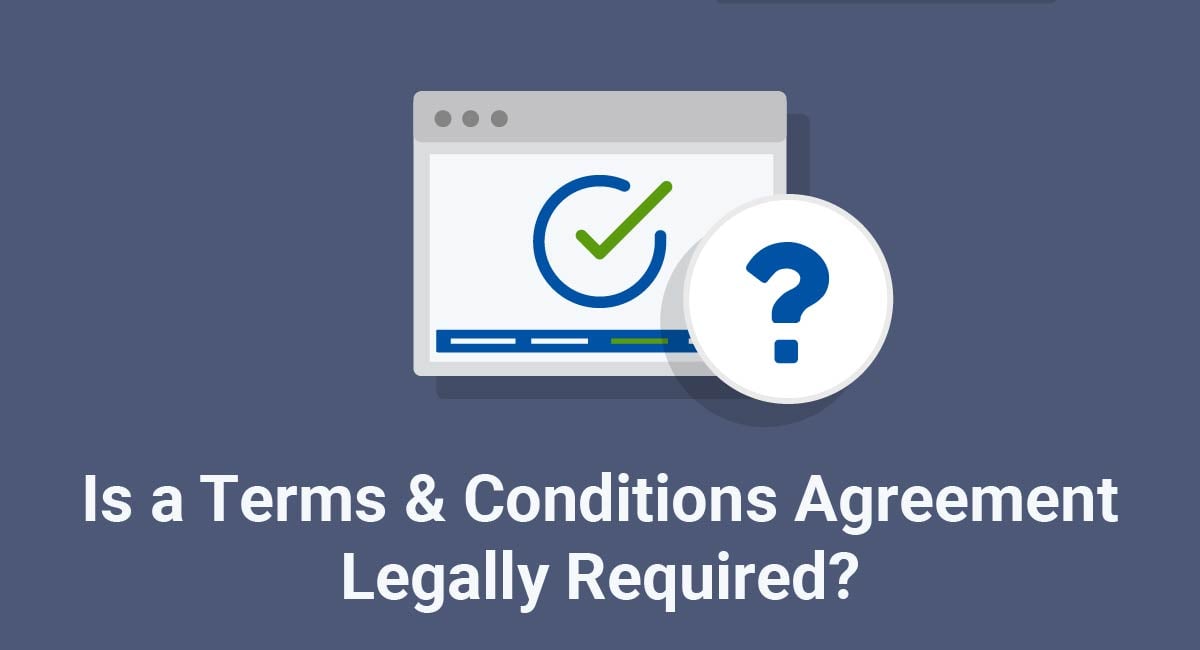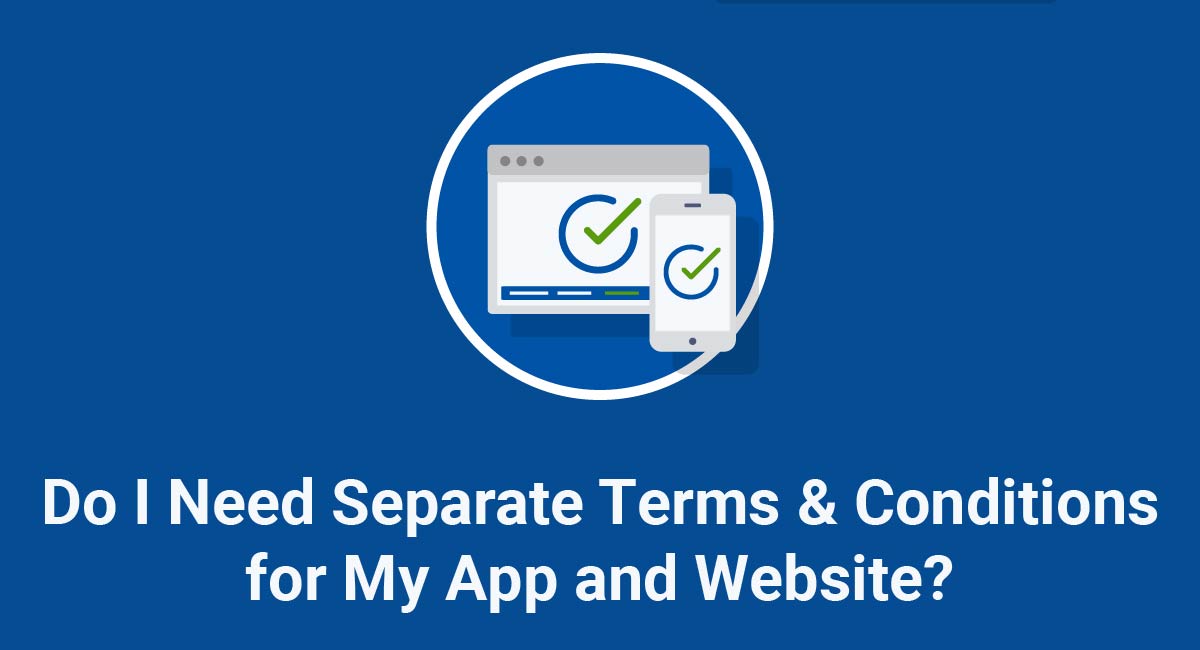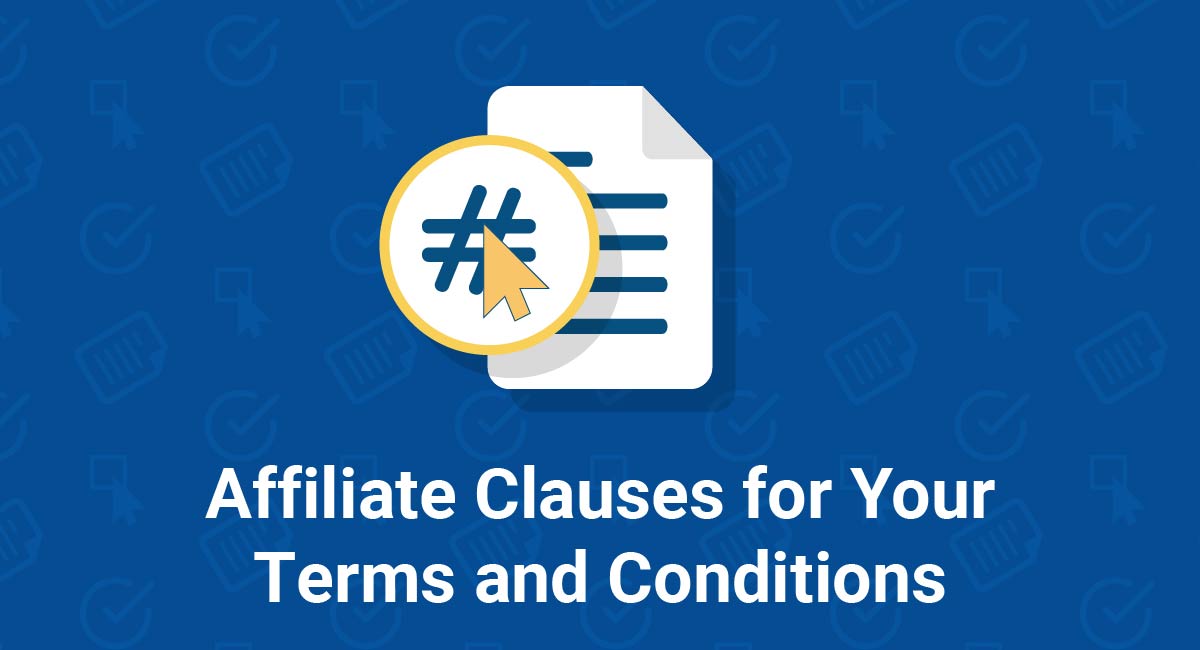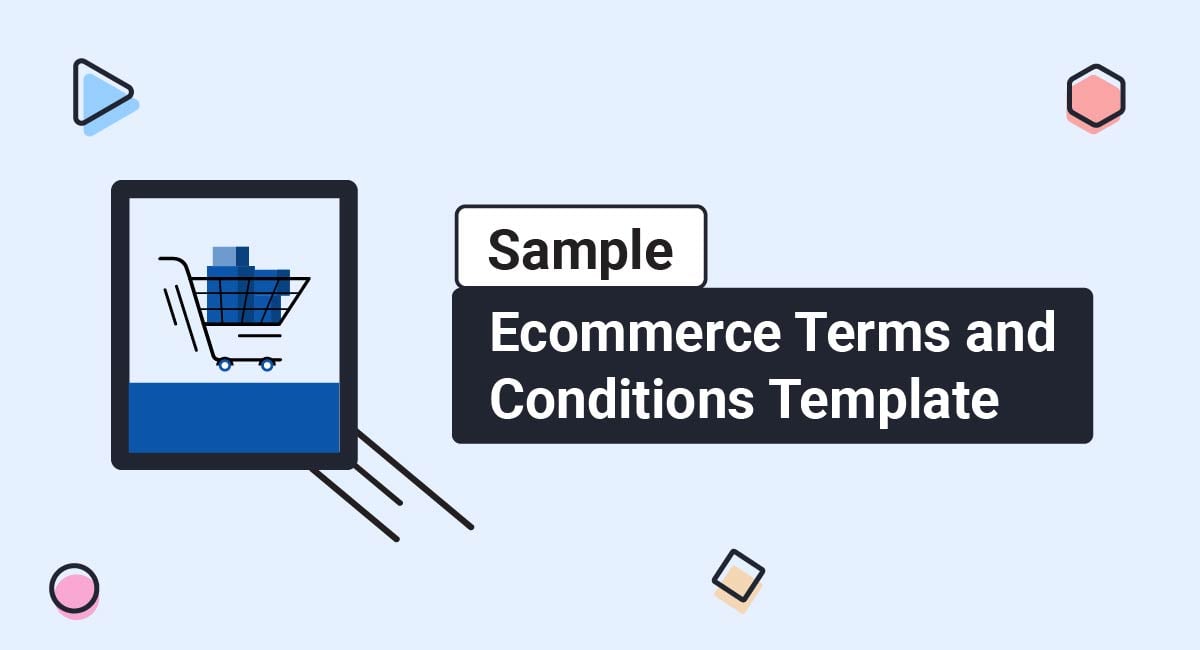While not legally required, a Terms and Conditions agreement (T&C) is highly recommended to have on your business website for a number of important reasons. Not only will having this agreement help your users understand the rules for using your website/service, but the T&C will also work to limit your liability and enhance your ownership rights.
A Terms and Conditions agreement is a legal document business owners can use to let website visitors know precisely what is expected of them. For example, a Terms and Conditions agreement can let users know what rules are applicable should they decide to download and use your mobile app, or if they subscribe to any of your services. A Terms & Conditions agreement is also known as a Terms of Service or a Terms of Use.
If you get your users to agree to your Terms and Conditions agreement in a compliant way, you'll be able to enforce your T&C against users in the event legal issues arise on either end of the relationship.
Our Terms and Conditions Generator makes it easy to create a Terms and Conditions agreement for your business. Just follow these steps:
-
At Step 1, select the Website option or the App option or both.
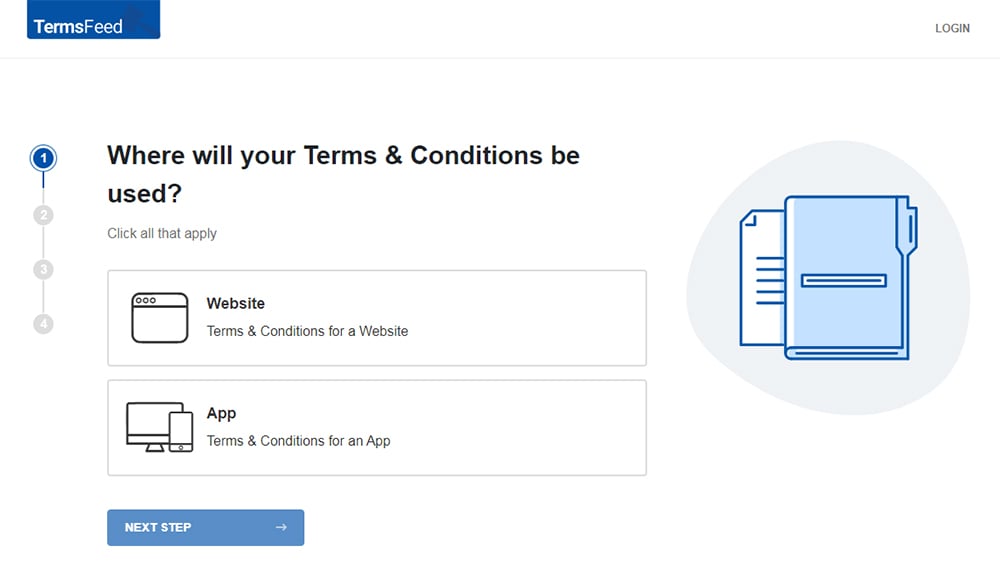
-
Answer some questions about your website or app.
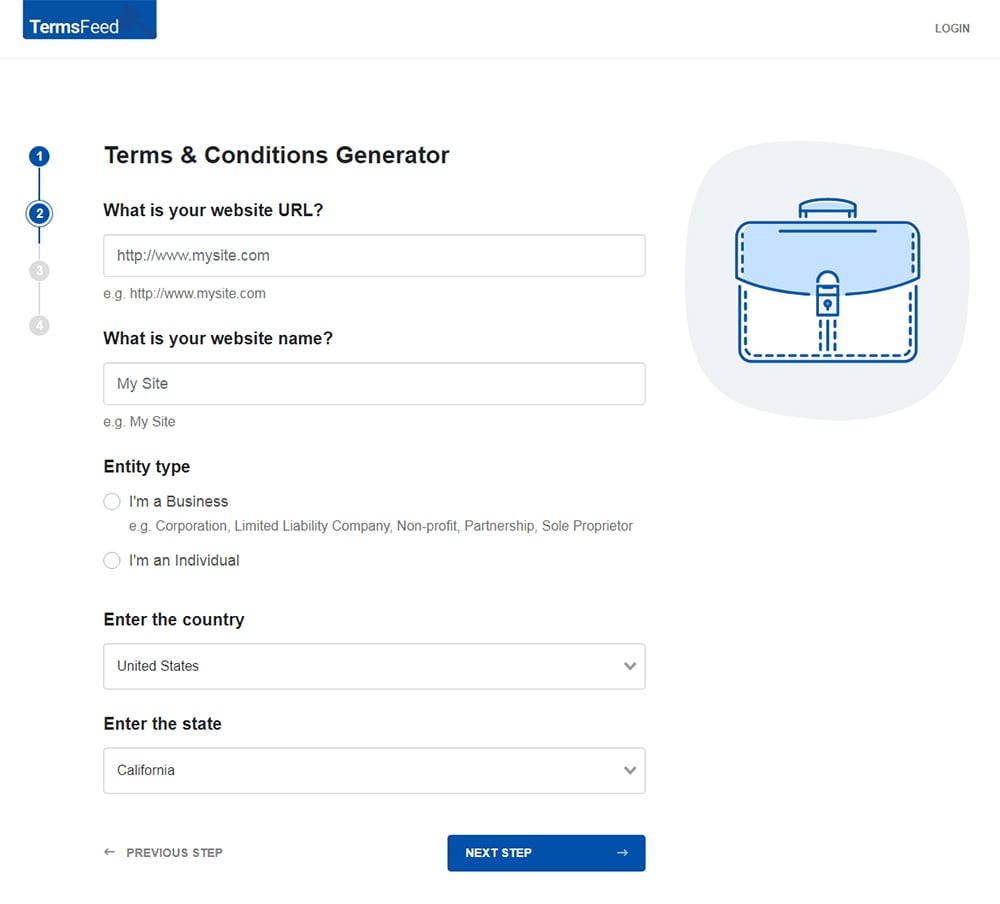
-
Answer some questions about your business.
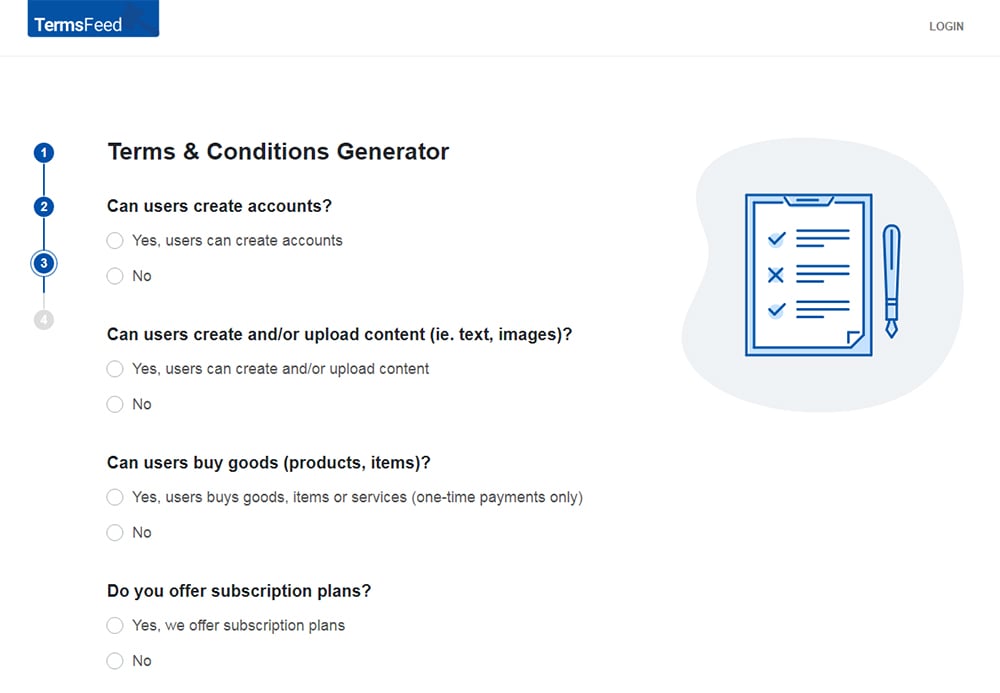
-
Enter the email address where you'd like the T&C delivered and click "Generate."
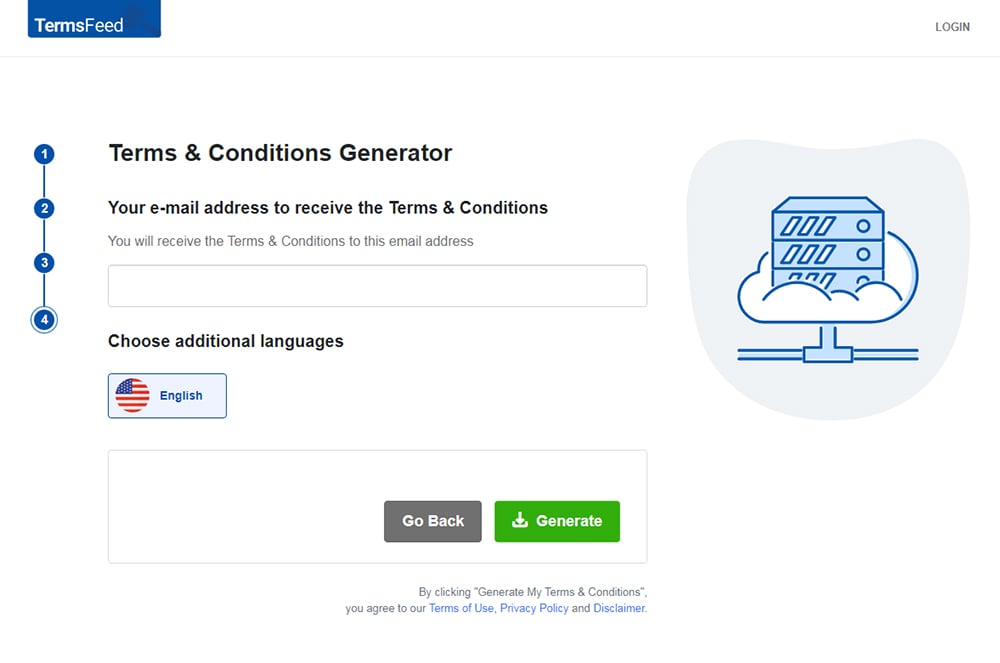
You'll be able to instantly access and download the Terms & Conditions agreement.
Terms and Conditions Agreement Helps You Control Your Website

As noted above, you don't have to have a Terms and Conditions agreement on your website. No law requires you to have one. However, if you decide to post one, you'll get increased control over the use of your website or service.
Your customers and users will also benefit from your T&C since they'll be able to find important information quickly, and know what's expected of them when using your website or service.
Let's take a quick look at some of the benefits of having a Terms and Conditions agreement when it comes to controlling your website.
Keep Customers Informed
A clear, transparent, and informative Terms and Conditions agreement can help keep your customers and users happier, while managing their expectations.
For example, your Terms and Conditions agreement can include information about things like shipping timeframes, your return policy, what payment methods you accept, how users can cancel subscriptions or deactivate an account, and other details that show how transactions are managed.
Here's how Amazon informs its customers about its refund policy while linking to the Returns Center so users can get more information if needed:

Here's how HubSpot explains how its free trial offer works so users are aware of what happens at the end of the trial:
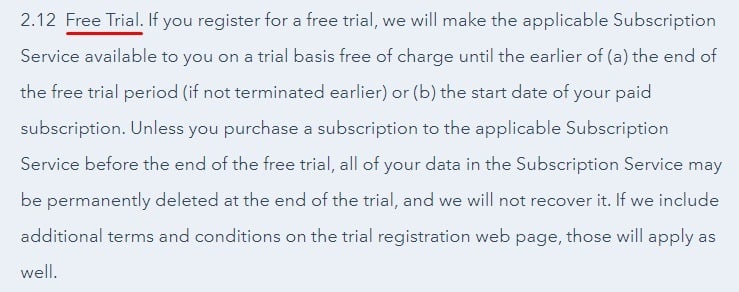
HubSpot also includes information about payment processing, including fees, how credit card payments are handled, and how payments can be made against invoices:

Not only should you inform your customers about how you handle things as a business, but you should outline how they must act when using your website or service.
Your Terms and Conditions agreement is where you can outline prohibited conduct and what your users must not do if they wish to use your site or service.
Here's an example from the WASH Terms of Use agreement that sets out what type of conduct is prohibited when using the WASH app:
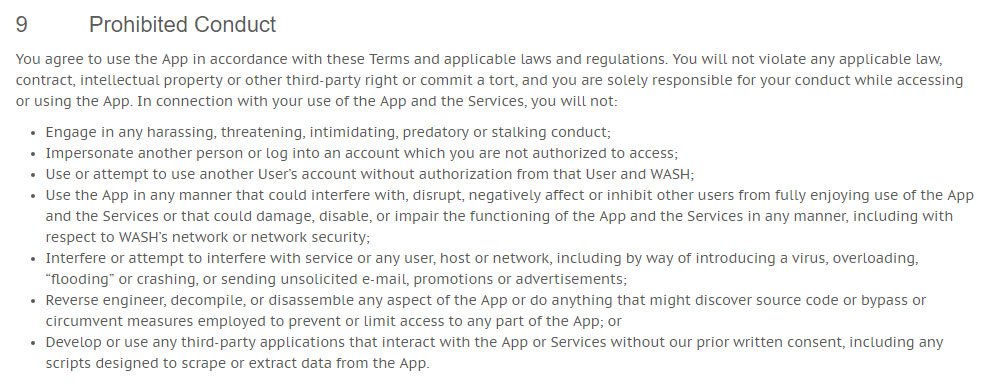
You can see how the prohibited conduct list is made up of general things that surely every business would wish to prohibit, including reverse engineering, interfering with the service, spamming users, harassing or threatening others, and other undesirable activities.
Retain Your Rights
Your Terms and Conditions agreement is important when it comes to retaining your rights, including:
- The right to terminate accounts
- Your intellectual property rights
You can include a clause that retains your right to take action in the event that a user does engage in any of the conduct you have prohibited.
Here's how WASH adds this clause in after its Prohibited Conduct clause. WASH makes it clear that if any of the terms are breached, the company has the right to take action:

It's important to address your ownership rights in intellectual property, and a Terms and Conditions agreement is the perfect place to do this.
Note how this clause from HubSpot makes it clear that the company owns and retains all rights to its IP, and states that users agree not to copy, rent, lease, sell, distribute, or create derivative works based on the content:
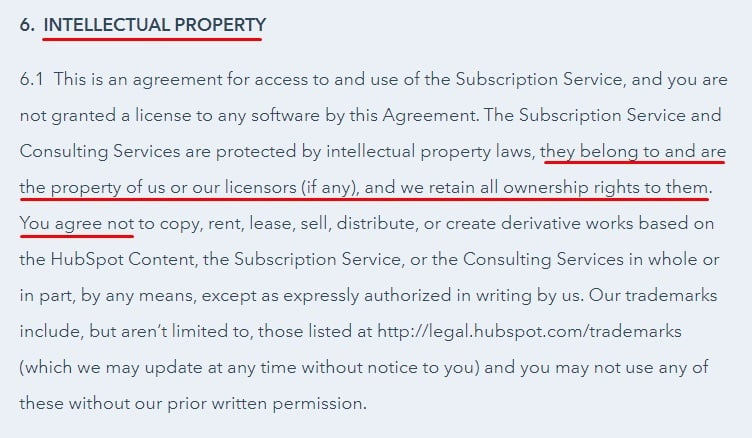
With a Terms and Conditions agreement, you can help protect your company from potential abuse by those who might intentionally misuse your site, services, or apps.
You can do this first by outlining your rules, and then by retaining the right to take action against those who violate them.
Declare Which Country's Laws Govern Your Site
One significant benefit of having a Terms and Conditions agreement agreement on your website is that you can determine under which country's legal jurisdiction the agreement falls under. In general, as the business owner, you decide where your business and website are based.
Without setting out the governing law, any user who brought legal action against you would be able to do so in their own locality. You can see the issues this would cause.
A governing law clause will help streamline any future legal issues by ensuring they take place in a location that's convenient and beneficial to you.
Here's an example of a standard governing law clause from WASH:

Limit Your Liability
Doing business can come with liability issues. A Terms and Conditions agreement can help prevent many of these when it includes the correct clauses and disclaimers.
You'll almost always find a standard "Limitation of Liability" clause in a T&C, such as this one from WASH:
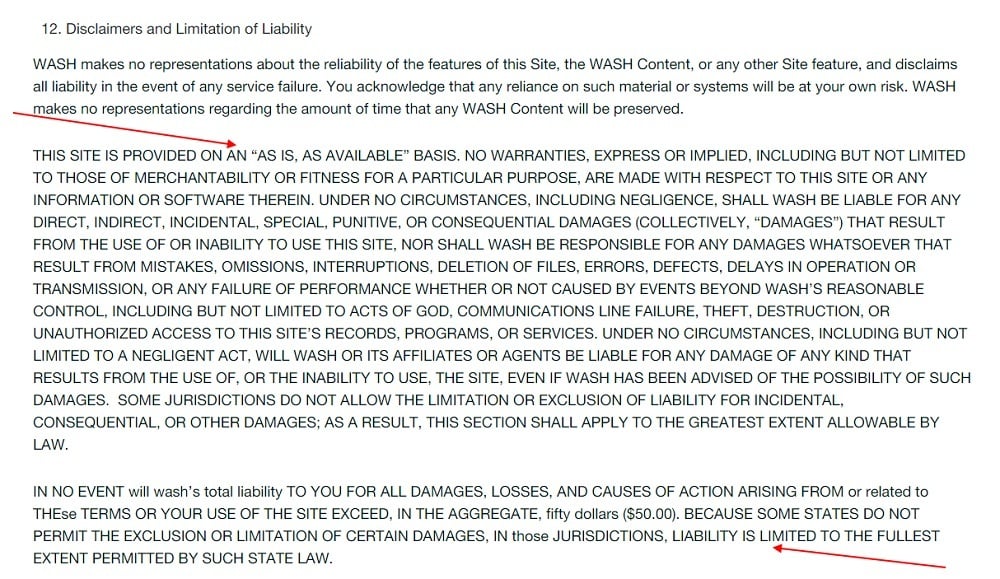
These types of clauses tend to look long, complex, and the same from business to business. This is because the language is used specifically to legally limit liability and disclaim warranties.
Including a clause like this in our T&C will help you avoid unnecessary legal issues.
You can also use your T&C to include disclaimers that help limit your liability.
For example, to prevent misunderstandings, Life Time Gym ensures that its users understand that while the website provides health and fitness information, that information doesn't constitute medical advice:

Remember that legal disputes can be costly, harmful to your reputation, and stressful. A set of clear and transparent Terms and Conditions agreements can help prevent disputes before they take place.
Summary
While a Terms and Conditions agreement is not legally required, there are many reasons why you should have one anyway. The biggest reasons to have a T&C are:
- To maintain control over your website/service/app
- To keep your users informed about the relationship between them and your business
A T&C lets you do things like:
- Limit your liability
- Disclaim warranties
- Retain the right to terminate accounts
- Set your governing law
- Share important information with your users in one convenient place
If you don't have a Terms and Conditions agreement, consider creating one and linking it to your website to boost your professionalism and enhance your users' experience.

Comprehensive compliance starts with a Privacy Policy.
Comply with the law with our agreements, policies, and consent banners. Everything is included.
